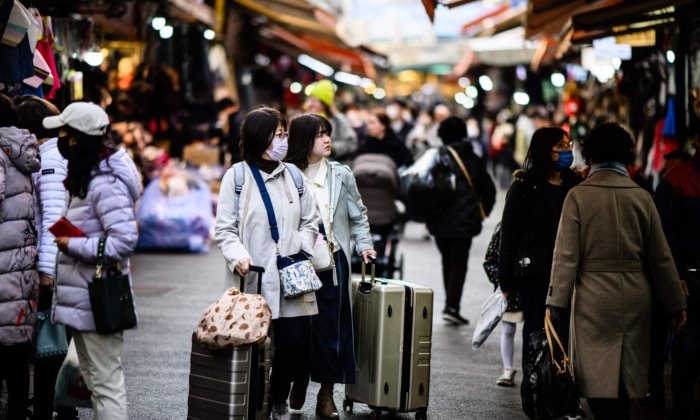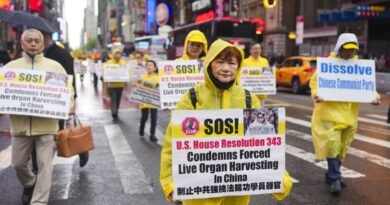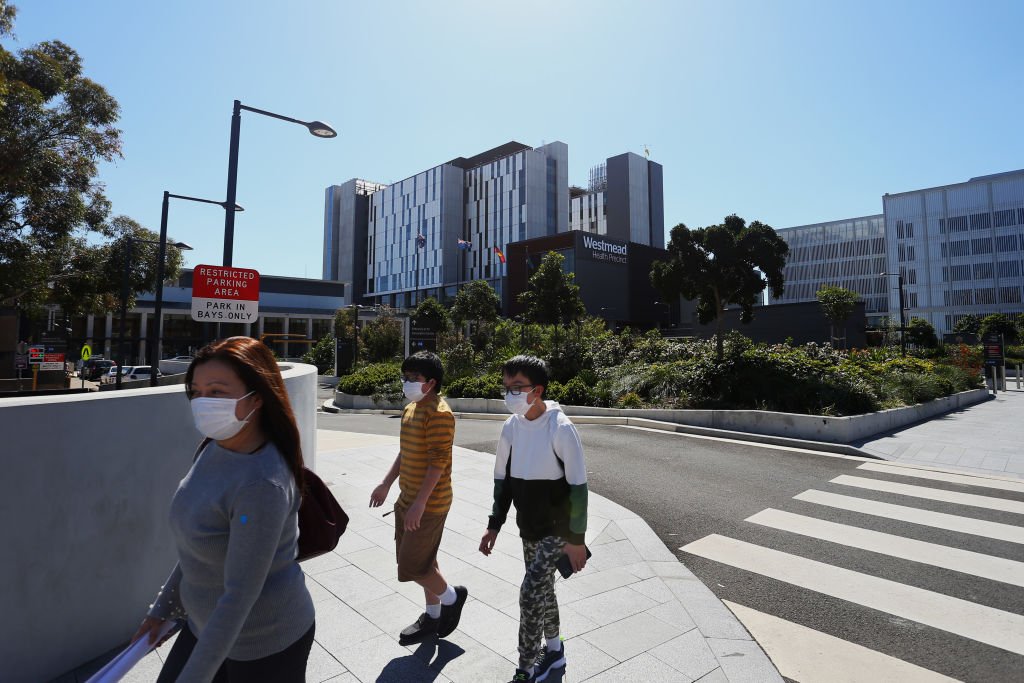China Allows Group Tours to South Korea Again, Prompting Criticism from Korean Lawmaker
Although South Korea has grown closer to the United States and Japan and more distant from China since the inauguration of President Yoon Suk Yeol, China has allowed group tours to South Korea to resume, after a six-year ban. Some South Korean lawmakers claim this represents a softening in China’s usually aggressive stance, citing Mr. Yoon’s principled and dignified diplomacy toward China as a reason for the concession.
China’s Ministry of Culture and Tourism recently announced that starting Aug. 10, it would fully open a third batch of travel destinations for group tours by Chinese citizens, including 78 countries and regions including South Korea, the United States, and Japan. As a result, Chinese tourists will be allowed to visit South Korea en masse for the first time in over six years. South Korea had been excluded from two earlier batches this year.
Related Stories
As soon as China announced the decision, Chinese cruise ships rushed to book trips, with 53 ships applying to dock at South Korea’s Jeju Port in just one day.
South Korea’s Jeju and Seogwipo ports are now fully booked until March of next year. The influx of Chinese tourists is expected to give a boost to the local economy.
The decision to resume tourism follows a strained relationship caused by South Korea’s deployment of the THAAD (Terminal High Altitude Area Defense) anti-missile system in 2016, to which the Chinese Communist Party (CCP) responded by banning group tours in March 2017.
Efforts by the former government of President Moon Jae-in to appease China, including a policy of “three no’s” (no additional THAAD deployment, no joining the U.S. missile defense system, and no forming a South Korea–United States–Japan military alliance), had little impact, with tensions persisting throughout Mr. Moon’s tenure.
A Terminal High Altitude Area Defense (THAAD) interceptor is launched during a successful intercept test, in this undated handout photo provided by the U.S. Department of Defense. (U.S. Department of Defense, Missile Defense Agency/Handout via Reuters/File Photo)
THAAD is a U.S.-designed and manufactured anti-missile system, which was installed in South Korea between 2016 and 2017 as a bulwark against a potential North Korean missile attack. However, Beijing insisted that the deployment of THAAD impacted China’s security and adopted a series of countermeasures and boycotts against South Korea.
The resumption of group tours on Aug. 10 aligned with the trilateral summit between South Korea, the United States, and Japan at Camp David. The gathering, dubbed “historic” by President Joe Biden in remarks Aug. 18, aimed to discuss the regional challenges posed by the CCP and North Korea.
The strengthened cooperation between the three nations is causing concern in China, according to one Chinese insider.
Zhan Debin, director of the Korean Peninsula Research Center at the Shanghai University of International Business and Economics, voiced the CCP’s apprehensions, telling Chinese state media The Observer, “The United States is building a ‘U.S.–Japan–Korea triangle alliance,’ intending to unite Asia-Pacific allies, and create containment against China (CCP). There’s no doubt about that.”
South Korea’s ruling People Power Party (PPP) lawmaker Shin Won-sik took to Facebook on Aug. 13 to herald the CCP’s resumption of group tours to South Korea as a significant accomplishment of the Yoon government’s “principled and upright diplomacy towards China.” Reflecting on the one year and three months since Mr. Yoon took office, the lawmaker declared that the CCP has “finally lowered its stance” and that the South Korean president’s approach was having its desired effect.
Mr. Shin also marked this year as the 31st anniversary of diplomatic relations between South Korea and China, calling for a review of lessons learned over this period. He stressed the importance of South Korea standing firm against the CCP, asserting that a submissive attitude would only lead to being ignored or even trampled upon by Beijing. Conversely, he noted, a strong, righteous stance would garner respect.
Drawing on the old saying, “Heaven helps those who help themselves,” Mr. Shin argued that the wisdom is applicable to Sino-Korean relations. For South Korea’s national pride and the healthy growth of its relationship with China, this perspective must be remembered and implemented, he said.
Mr. Shin further emphasized that “the stronger the South Korea–U.S. alliance, the deeper our relationship with our allied countries, the higher our strategic value, the more China (CCP) will respect us.”
He criticized the Moon Jae-in administration for having soured relationships with the U.S. and Japan, as well as China, contrary to the common belief that the South Korea–U.S. alliance and Sino-Korean relations were inversely proportional.
He also likened the CCP’s “wolf-warrior” diplomacy to a wolf that bullies the weak but fears the strong, voicing the belief that South Korea, as a developed nation with strong alliances, has the capacity to keep the CCP in check.
South Korea’s legacy media outlet Chosun Ilbo echoed these sentiments in an editorial on Aug. 14, stating that the CCP would not lightly regard any country that “remains steadfast in its principles, even in the face of threats.”
Since assuming office in May 2022, Mr. Yoon has focused on strengthening alliances with the United States and Japan and fostering a Sino-Korean relationship grounded in mutual respect.
South Korean first lady Kim Keon Hee (L), South Korean President Yoon Suk Yeol (C-L), U.S. President Joe Biden (C-R), and first lady Jill Biden (R) wave during a ceremony at the White House in Washington, on April 26, 2023. (Madalina Vasiliu/The Epoch Times)
Upon taking the reins, Mr. Yoon rekindled “shuttle diplomacy” with Japan and fortified South Korea’s alliance with the United States. His visit to the United States in late April culminated in the “Washington Declaration” with U.S. President Joe Biden, a landmark agreement seeking enhanced security protections from the U.S. government. Notably, the declaration included an unprecedented plan for the United States to send a nuclear submarine to dock in South Korea.
The Washington Declaration was met with strong criticism from the CCP. Liu Pengyu, a spokesperson for the Chinese Embassy in Washington, told Voice of America, “The U.S. behavior is a result of its Cold War mentality. What the U.S. has done stokes bloc confrontation, undermines the nuclear nonproliferation system and hurts the strategic interest of other countries.”
In response to China’s criticism, Mr. Yoon emphasized that the CCP’s failure to join in sanctioning North Korea left South Korea with limited options. He also highlighted the unceremonious treatment of his pro-China predecessor during his visit to China. Mr. Yoon argued that only by building a tripartite alliance with the United States and Japan could South Korea ensure fair treatment from the CCP.
In the lead-up to his U.S. visit, Mr. Yoon made clear his stance on the escalating tensions in Taiwan, attributing them to the CCP’s attempts to forcibly alter the status quo. He voiced South Korea’s strong opposition to such changes, along with that of the broader international community. Mr. Yoon further stressed that the Taiwan issue is not merely a bilateral concern between the CCP and Taiwan, but a global challenge, likening it to the situation on the Korean Peninsula.
Source link




